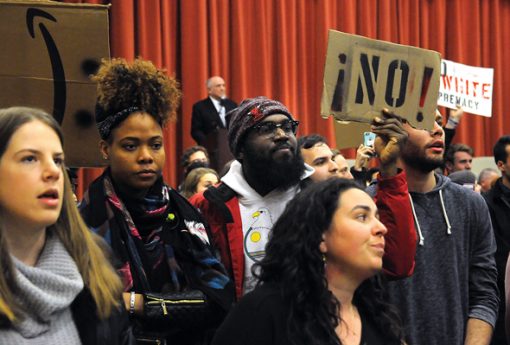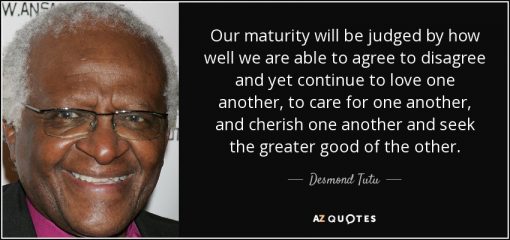There is a great deal of conversation currently, on college and university campuses, and in the media, about free speech. The conversations I hear about, and read about, appear to suggest that free speech must be limited, in some cases, for the safety of students and most of the debate appears to focus on the question of just what words and sentiments should be considered free speech and what words and sentiments cross the line and are, at best, inappropriate, and at worst hate-filled and unacceptable?

There is an exception to free speech that is often referenced from Justice Oliver Wendell Holmes who wrote in dictum (non-binding introductory comments in a court opinion) in the case of U.S. v. Schenck (1919) that, “the most stringent protection of free speech would not protect a man in falsely shouting fire in a theatre and causing a panic.” In 1942, in Chaplinsky v State of New Hampshire, the Supreme Court announced that two types of speech were not protected: “words that by their very utterance inflict injury, and speech that incites an immediate breach of the peace.” Those exceptions are still not clearly delineated. For example, in Gooding v. Wilson in 1972, the Supreme Court found that even “vulgar or offensive” speech is protected by the First and Fourteenth Amendments.
Focusing on exactly what content is appropriate and exactly what content is inappropriate is neither the most salient debate nor the most useful for moving toward a future in which everybody feels safe to express their opinion. Speech includes not only what we say but also how it is understood. We are a country of diverse people with diverse values. What offends some does not offend others. I believe that a more fruitful conversation on our campuses today would focus on why it is so difficult to listen to somebody whose opinions differ greatly from our own without feeling inclined toward violence.
An essential purpose of institutions of higher learning is to foster critical thinking, to encourage expansive exposure to new ideas and to create cultures in which all who are members of the campus feel free and safe to learn, free and safe to move throughout the campus and to espouse their opinions, and free and safe to challenge opinions expressed. I believe our postsecondary educators should be instructing our next generations in the art of disagreeing, even vehemently, through the art of respectful and thoughtful debate rather than through responses of fear and hatred that are often expressed in physical and verbal violence. Every controversial speaker is an opportunity to learn about how most effectively to say what we feel in a way that makes it possible for our strongest detractors to hear. We don’t change the opinion of people at whom we yell or threaten. Nor do we learn from people whom we fear.
As is demonstrated almost every day in our national legislature – we appear to be forgetting, as a culture, the learning and growth that can occur when our ideas are thoughtfully challenged and the value of considering the possibility that we might be wrong. I call on all of our institutions of higher learning to focus their energies on creating cultures of respect that embrace diversity of life experience and values so that the students themselves lead by example and demonstrate that it is possible to disagree, and to strongly disagree, without suggesting that anybody who has a different opinion is a lesser being, or has less intelligence, or is somehow deserving of violence. This takes practice.
How many of our institutions of higher learning are requiring our students to practice disagreeing respectfully? I would like to see campuses spending less time debating where on a continuum a particular speaker falls on the spectrum of hate or compassion (and making that the sole or primary determinant for extending an invitation or not) and spend more time encouraging campus-wide conversations about why it is so difficult to listen and engage in conversation with people who believe differently than we do – and then require students to practice doing it with the aid of a skilled facilitator. How many are calling on their students to sit down to have facilitated conversations with people whose life experiences are vastly different? We all learn the most on the edge of our comfort zone.

Our response to differing opinions does not have to be violent. I have mediated thousands of disputes. I know it is possible to facilitate conversations between people who feel passionately about their perspective and who have forgotten how to find the humanity in the person with whom they are in conflict. This skill set is desperately needed and would greatly expand our ability to support what all of us agree on about the significance of the First Amendment: that it preserves our right to say what matters to us without endangering anybody else in the process.

